‘He’s such a good competitor. He works so hard and he deserves it,’ said his predecessor Lewis Hamilton after Nico Rosberg won this season’s Formula One drivers’ championship. Replied Rosberg,the new champion: ‘He’s a top man and a top driver. He’s like Robocop. I thought I could pull clear of him but he kept coming back.’
Well, actually, no. The quotes are real but the words were not uttered by Rosberg and Hamilton, whose championship is yet to be decided. Substituting only the word ‘rider’ for ‘driver’, the tributes were actually those recorded by Jim Crowley, Britain’s new champion Flat jockey, and Silvestre de Sousa, the previous title-holder, after the pair had spent five months this summer driving 50,000 miles between Britain’s racetracks and riding more than 700 horses around them in a frantic tussle for the top title in their sport. The point of my transposition is that you simply could not imagine the title contestants in Formula One, or almost any other sport, saying, and meaning, such complimentary things about
each other.
The Crowley-de Sousa exchanges reminded me of a conversation at Warwick races in the spring with the champion jump jockey Richard Johnson about rivalry in racing. This is an age in which many sports are blighted by ‘sledging’ and professional fouls, by bitter spats and financial jealousy even between supposed teammates, but Johnson insisted that hate was never part of his inspiration: ‘I don’t need anger against someone to compete with him.’ The constant threat of injury and of their wives or partners receiving the dreaded afternoon phone call from a hospital contributes to the camaraderie at the jumping end of the sport and perhaps Jim Crowley’s generosity in victory owes something to the fact that he was for many years a jump jockey himself, with 300 jumps winners to his credit before he switched to the Flat ten years ago.
He admits that there is nothing in Flat racing to replace the buzz of riding a good jumper over fences, but the prizes are richer and the injuries much less frequent. As a result, and with better nutritional advice enabling others to keep a check on their weight, we have been seeing more and more former jump jockeys making the switch to the Flat. One to do so this year was Dougie Costello, memorably insisting of the summer sport: ‘It’s still just a green field with a white rail and some horses.’ He has already won two Group One races on the filly Quiet Reflection for Karl Burke. Other switchers have included veteran Timmy Murphy and young Willy Twiston-Davies, son of the duffel-coated trainer Nigel Twiston-Davies who is the very embodiment of National Hunt racing. Willy, too, scored a first Royal Ascot winner this year.
The role model for many of them has been Graham Lee, who was top jockey at the Cheltenham Festival in 2005 and who won the Grand National on Amberleigh House. Lee used to tell friends that he was reluctant to make the switch to the Flat despite being able to manage the lower weights because he feared that people would say that he had ‘lost his bottle’. That from a man who rode more than 1,000 winners over jumps. When Lee did finally follow Sir Anthony McCoy’s advice to make the move, it paid off spectacularly: he rode more than 100 winners on the Flat for each of the next four years, including a victory in the Gold Cup at Royal Ascot in 2015.
Recently, Graham Lee has demonstrated a different kind of courage in a ‘coming out’ for which many of his riding colleagues will bless him in times to come. He revealed to the Racing Post that his absence from the racetracks for a few weeks this summer was due not to the ‘mystery virus’ suggested at the time but to depression. We often forget that being a jockey over jumps or on the Flat requires mental as well as physical resilience: confidence is crucial but by definition you will ride more losers than winners and at the higher levels you will face a relentless media focus on your success rate even if it is the horse rather than the rider that has failed on the day. Graham Lee is not the only rider to have battled depression: it can torment riders at every level and at its severest it was the affliction that this year finally ended the remarkable career of six times champion jockey Kieren Fallon.
Certainly the public admission of his suffering hasn’t affected Graham Lee’s riding: his handling of Mick Channon’s filly Kassia at Newmarket’s recent Future Champions meeting was an object lesson in keeping cool under pressure and properly positioning a horse. The Professional Jockeys Association now runs a 24-hour confidential helpline for riders who fear they may be suffering from depression and nearly 20 riders have been referred for face-to-face support. Graham Lee’s honesty about his problem can only help more to find a solution.
Got something to add? Join the discussion and comment below.
Get 10 issues for just $10
Subscribe to The Spectator Australia today for the next 10 magazine issues, plus full online access, for just $10.

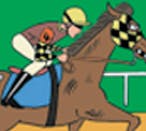

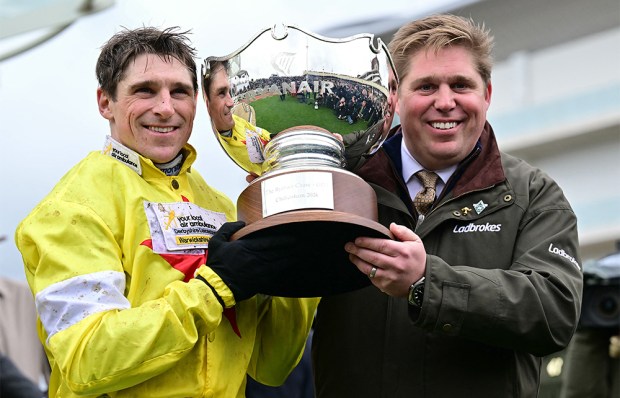
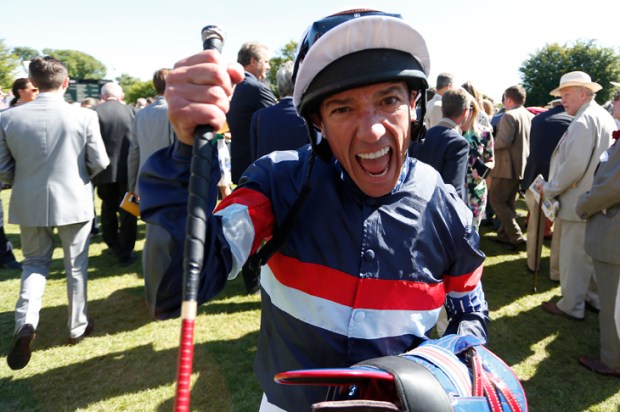
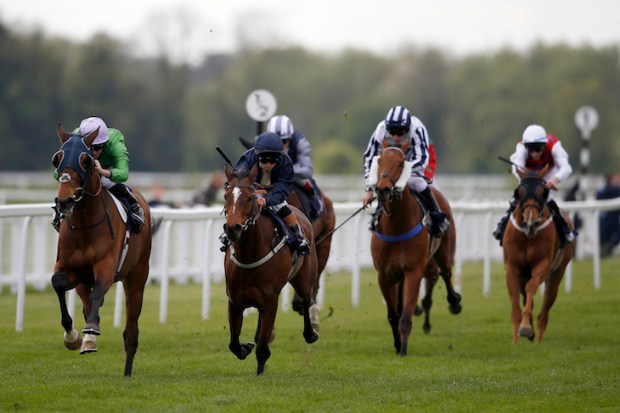
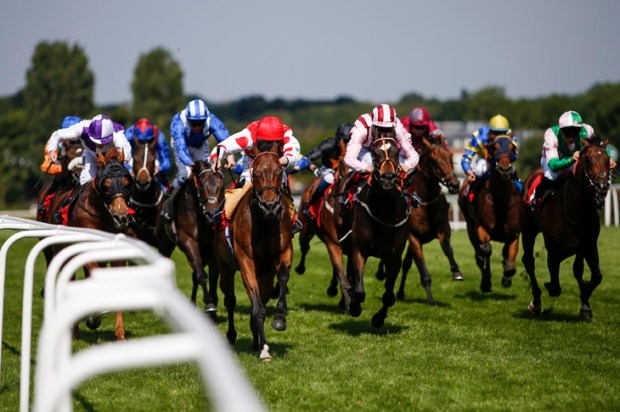






Comments
Don't miss out
Join the conversation with other Spectator Australia readers. Subscribe to leave a comment.
SUBSCRIBEAlready a subscriber? Log in